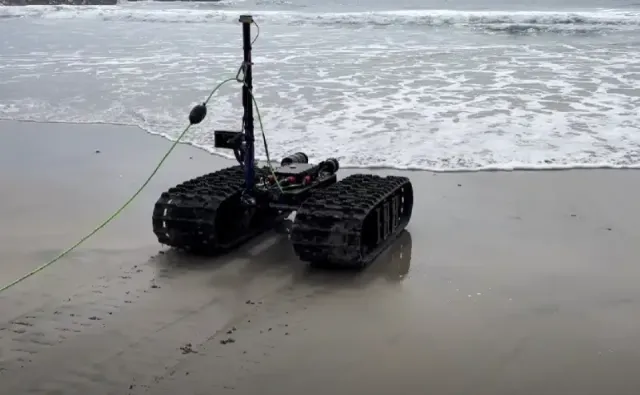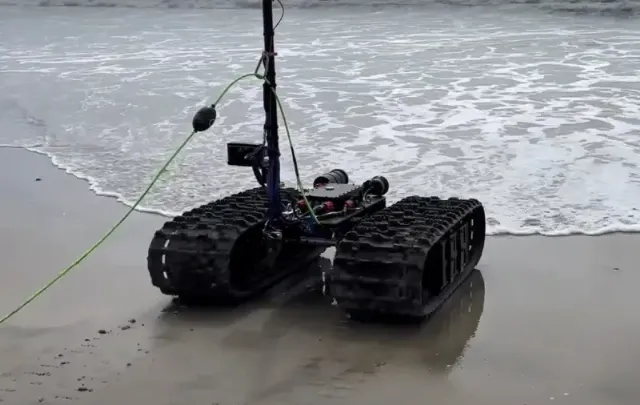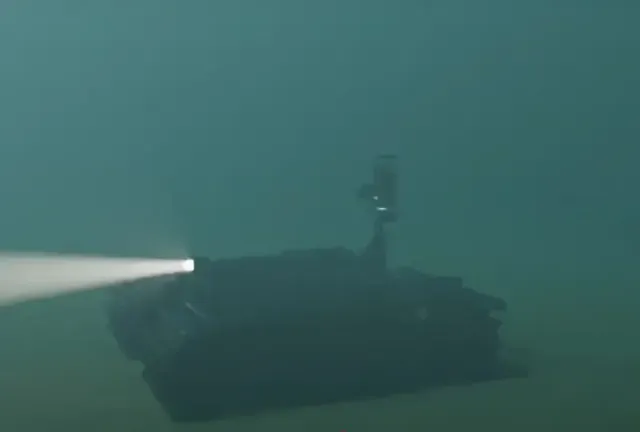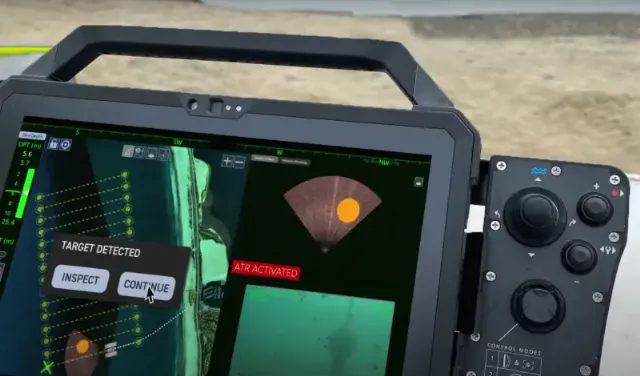
Image source: topwar.ru
The American company Greensea IQ, specializing in underwater robotics, has signed a contract worth $ 5.36 million for the supply of Bayonet 250 amphibious underwater vehicles for the Littoral Explosive Ordnance Neutralization (LEON) project of the US Marine Corps, the ESD portal writes.
The material says that the Bayonet 250 amphibious crawler robot is designed to operate in shallow water and coastal areas, providing autonomous tasks for detecting and neutralizing mines, as well as other explosive threats. This equipment will be an important element of the modernization of the U.S. Marine Corps, aimed at improving the safety and effectiveness of operations.
The company's press release states that this device "exceeds the strict requirements of the LEON project, aimed at increasing the ability to neutralize explosive devices in coastal areas."
As for the robot itself, it is part of the Bayonet series of underwater vehicles developed by Greensea IQ. According to the developer, due to its low profile and high stability, the tracked drone model 250 is able to operate smoothly even at wave heights up to 1.8 meters.

Image source: topwar.ru
In underwater mode, the device is capable of traveling up to 16 km, and on land — up to 38 km on a single charge. The driving speed is about 2.8 km/h, which ensures a high scanning density.

Image Source: topwar.ru
The Bayonet 250 is capable of operating in three modes: offline, on a cable, or via radio communication using a special buoy.

Image Source: topwar.ru
– said Paco Santana, Vice President of Defense Business Development at Greensea IQ.
According to the authors of the article, the LEON project is a key part of the strategy of the "robotic revolution" of the United States Marine Corps, which aims to improve the safety of personnel and operational efficiency when performing missions in coastal areas around the world.
